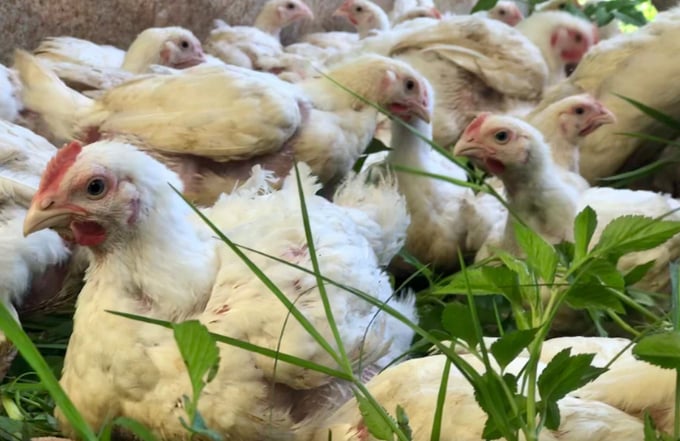June 4, 2025 | 08:23 GMT +7
June 4, 2025 | 08:23 GMT +7
Hotline: 0913.378.918
June 4, 2025 | 08:23 GMT +7
Hotline: 0913.378.918

Demand is high for pasture-raised meat chickens. Photo: ABC Rural: Jennifer Nichols
The Australian Chicken Meat Foundation (ACMF) has been battling to convince people that selective breeding, improved nutrition and animal husbandry are behind the change.
But a recent survey showed that battle was yet to be won, with nearly six in 10 of the respondents incorrectly attributing the dramatic change in meat birds to added hormones and steroids.
Why the confusion?
Free range chicken meat is advertised in Australia as hormone-free, but ACMF deputy executive director Kylie Hewson said the reality was hormone use in meat chickens was outlawed in Australia decades ago.
"A really long time ago, back in the 50s and 60s, some people in the industry did trial using steroids or hormones to grow chickens bigger," Dr Hewson said.
"What they quickly realised was that it was a lot more effective to use selective breeding to breed the traits they wanted in meat chickens."
Dr Hewson said steroids and hormones had not been used in Australia's meat chicken industry for more than 60 years and antibiotic treatment was kept to an absolute minimum.
"Sometimes it's easier to believe the myth than the truth," she said.
"We want to make sure that Australians are comfortable in their choices for what they feed their families."
Food Standards Australia New Zealand (FSANZ) has approved regulated hormone growth promotant use in cattle in Australia – but not for chickens, sheep, pigs or goats.
Poultry popular
Each year, Australians eat more than double the amount of chicken compared to any other meat, and by 2023 the average consumption is expected to reach 49 kilograms per person per year.
University of Queensland meat scientist Louw Hoffman said the industry, valued at $3.063 billion, was able to meet that demand by developing crossbreeds specific for meat production.
He said the modern meat bird was less physically active and more efficient at converting grain into growth, and was often raised in large sheds to control lighting, temperature, humidity, diet and biosecurity risks.
Groups opposed to the chicken farming system have labelled it "factory farming", but Dr Hewson said intensive Australian chicken production was nothing like "horrendous" systems in some countries overseas.
"If the chicken is unhappy, it's not going to produce, it's not going to grow, the food conversion is going to go down and the company's going to make a huge financial loss," he said.
Despite opposition to broiler farms in some communities, the ACMF said the system had a lower environmental footprint and the industry had adopted a sustainability roadmap.
Cornish cross
The favoured breed for meat chickens is the Cornish cross and not all of them are raised in barns.
There is strong demand for "pasture-raised" meat chickens.
At Bunya Grove Produce in Amamoor, Mick and Kylie Carr buy day-old chicks, which grow as big as 2 kilograms in 42 days on a diet of grain, fresh grass and bugs.
"They're certainly not like an egg-laying chicken that's very active, all they basically do is eat and drink and take it easy," Mr Carr said.
The Carr's sheds are moved daily to fresh grass, with the meat chickens serving a dual purpose.
"We haven't put any synthetic fertiliser on this pasture, it's all done with the chickens," Mr Carr said.
(ABC News)

(VAN) Vikas Rambal has quietly built a $5 billion business empire in manufacturing, property and solar, and catapulted onto the Rich List.

(VAN) Available cropland now at less than five percent, according to latest geospatial assessment from FAO and UNOSAT.

(VAN) Alt Carbon has raised $12 million in a seed round as it plans to scale its carbon dioxide removal work in the South Asian nation.

(VAN) Attempts to bring down the price of the Japanese staple have had little effect amid a cost-of-living crisis.

(VAN) Fourth most important food crop in peril as Latin America and Caribbean suffer from slow-onset climate disaster.

(VAN) Shifting market dynamics and the noise around new legislation has propelled Trouw Nutrition’s research around early life nutrition in poultry. Today, it continues to be a key area of research.

(VAN) India is concerned about its food security and the livelihoods of its farmers if more US food imports are allowed.